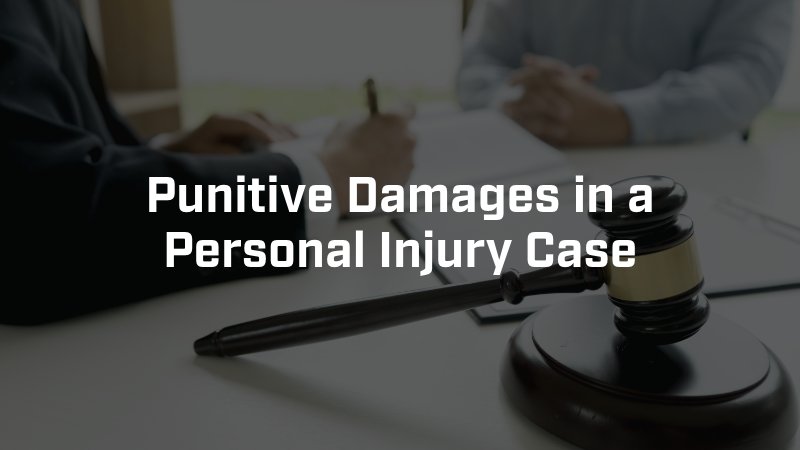When a person sustains an injury caused by the negligent, intentional, or careless actions of another individual or entity, they may be able to recover monetary compensation through a lawsuit. In general, personal injury victims are able to recover compensation for medical bills, lost wages, out-of-pocket expenses, pain and suffering damages, and more if their claim is successful.
In some situations, punitive damages may also be available, but these types of damages are guided under a different set of statutes because they serve a different purpose.

What Are Punitive Damages?
Punitive damages in personal injury cases serve as a means to punish defendants for particularly egregious harmful conduct and to deter similar actions by other actors in the future. Unlike compensatory damages (economic and non-economic damages), which aim to reimburse the victim for actual losses, punitive damages are intended to penalize the wrongdoer.
Elements Required for Punitive Damages to Apply
The current standard used to determine whether punitive damages should apply to a personal injury claim is examining whether or not a person responsible for negligence was acting with an “evil mind” at the time the incident occurred.
We know that the term “evil mind” conjures up images of movie villains, but it is not that extreme. This term means that a person knew that their actions were causing a victim harm but chose to carry out the actions anyway. Courts in Arizona have further defined an evil mind as either:
- The person had ill will and intentionally caused harm to a victim or victims.
- The person knew what they were doing was so unsafe that it was very likely to cause harm and chose to carry out the actions anyway.
Determining these states of mind in order to award punitive damages can be challenging. If you believe you could be owed punitive damages for your particular personal injury claim, we encourage you to discuss this with your attorney, who can guide you toward the best route for recovering compensation.
A skilled personal injury lawyer in Phoenix can, if it is agreed punitive damages are appropriate, make an argument to a jury and judge that these damages will act as a sufficient punishment to the defendant and a deterrent to others in the future.
Possible Examples of When Punitive Damages Would Apply
Let us first examine vehicle accident claims to show examples of when punitive damages may be appropriate. Generally, most examples of driver negligence that lead to accidents would not rise to the level of requesting punitive damages.
For example, if a driver is distracted because they were looking at a social media post on their phone and caused an accident, punitive damages likely would not apply. This is a typical negligence claim. However, if a driver intentionally strikes another vehicle or engages in extremely dangerous driving behavior, this driver could be deemed to have had an “evil mind” at the time the incident occurred, thus opening the door to a punitive damage argument.
Another possible example of when punitive damages could apply could be an employer who knew about extremely dangerous situations on their premises but chose not to take any steps to fix the problem or to warn employees about the dangers. If a person sustains an injury due to the dangerous situation, punitive damages could apply if an effective argument could be made that the employer should be punished for their actions.
